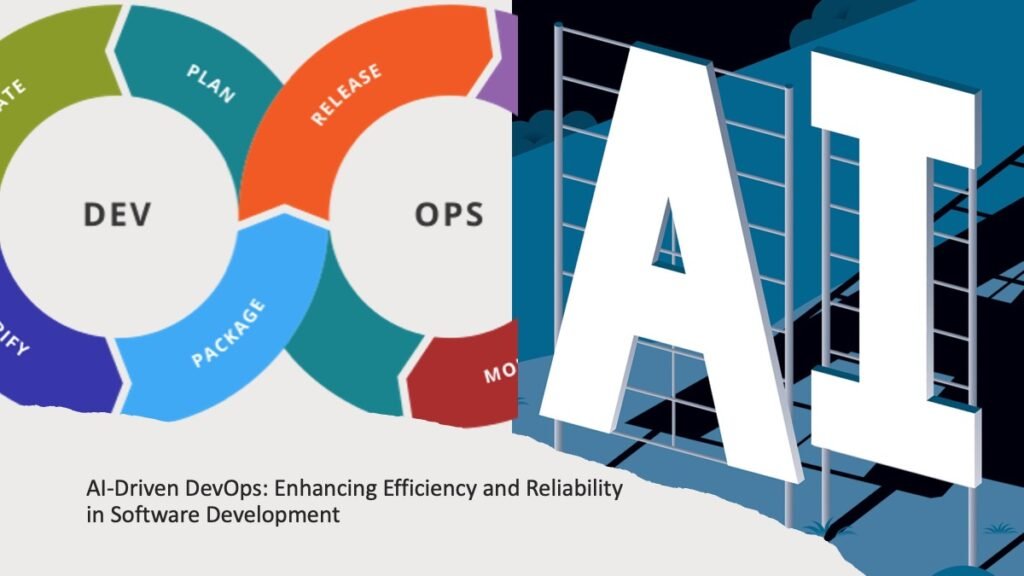AI-Driven DevOps: Enhancing Efficiency and Reliability in Software Development
In today's rapidly evolving tech landscape, the integration of artificial intelligence (AI) into DevOps practices is reshaping how software is developed, deployed, and maintained. AI-driven DevOps represents a paradigm shift, leveraging advanced analytics and automation to optimize workflows, predict issues, and enhance overall efficiency. Let's dive into how AI is revolutionizing the world of DevOps and what this means for the future of software engineering.
Automation and Predictive Analytics
AI excels in automating repetitive tasks and enhancing predictive capabilities within DevOps workflows. Traditionally, DevOps involves numerous manual processes such as testing, deployment, and monitoring. AI algorithms, powered by machine learning and data analytics, can analyze vast amounts of historical and real-time data to identify patterns and predict potential issues before they occur. This proactive approach not only speeds up development cycles but also minimizes downtime and improves software reliability.
For instance, AI-powered predictive analytics can foresee performance bottlenecks based on historical usage patterns and recommend optimizations in real-time. This capability allows DevOps teams to preemptively allocate resources, adjust configurations, and prioritize tasks to maintain seamless operations.
Optimized Resource Allocation
One of the significant advantages of AI-driven DevOps is its ability to dynamically allocate resources based on workload demands and performance metrics. In traditional setups, scaling infrastructure to handle fluctuating workloads often involves manual intervention and guesswork. AI systems, however, can intelligently analyze workload patterns, application performance metrics, and user traffic to optimize resource allocation.
For example, AI algorithms can automatically scale cloud resources up or down based on current demand, ensuring optimal performance and cost-efficiency. This capability not only enhances scalability but also minimizes operational costs by avoiding over-provisioning or under-provisioning of resources
Continuous Improvement and Iteration
AI-powered analytics provide invaluable insights into user behavior, application performance, and system metrics. By continuously monitoring and analyzing data, DevOps teams can make data-driven decisions to improve software quality, user experience, and business outcomes. This iterative approach fosters rapid experimentation, quick feedback loops, and agile development practices essential for staying competitive in today's market.
Moreover, AI enables predictive maintenance by identifying potential issues before they impact users. For instance, AI algorithms can detect anomalies in application logs or performance metrics, allowing DevOps teams to proactively address underlying issues and prevent service disruptions.
Enhanced Security and Compliance
Security remains a top concern in software development, particularly with the rise of sophisticated cyber threats. AI contributes to DevOps security by detecting anomalies, identifying potential vulnerabilities, and automating compliance checks. AI-driven security measures can continuously monitor network traffic, analyze patterns indicative of malicious activities, and respond swiftly to mitigate threats.
Furthermore, AI-powered threat intelligence can enhance proactive threat hunting and incident response capabilities. By leveraging AI-driven insights, DevOps teams can strengthen their defense mechanisms and ensure robust protection of sensitive data and systems.
Case Studies and Real-World Applications
Numerous organizations across various industries are already reaping the benefits of AI-driven DevOps. For instance, a leading e-commerce platform leveraged AI to automate deployment processes, resulting in a 30% reduction in time-to-market for new features. Another telecommunications company used AI-driven predictive analytics to optimize network performance, leading to improved reliability and customer satisfaction.
These case studies underscore the transformative impact of AI on DevOps and highlight its potential to drive innovation and business success. As AI continues to evolve, its role in DevOps will become increasingly pivotal, enabling organizations to accelerate innovation cycles, deliver superior customer experiences, and maintain a competitive edge in the digital era.
Conclusion
AI-driven DevOps isn't just about adopting new technologies—it's about embracing a mindset of continuous improvement, efficiency, and resilience in software development. By leveraging AI to automate tasks, optimize resources, and enhance security, organizations can unlock new levels of productivity and innovation.
Curious about how AI-driven DevOps can transform your software development processes? Visit Enterprise Application Development and Maintenance Services to learn more about our AI solutions and how they can optimize your DevOps workflows. Stay ahead of the curve and revolutionize your approach to software engineering with AI today!

